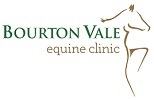Vaccinations
Vaccinations are an essential part of your horse’s health, whether they are for a competition horse or a family companion. It is recommended that they are kept up to date to provide continuous immunity, and to comply with pony club, riding club, British eventing, British dressage, BSJA and many other regulatory authority rulings, including the BHA and FEI.
Vaccinations protect your horse against life threatening diseases such as tetanus and diseases that can severely affect its health and performance, such as equine influenza and herpes virus infection.
